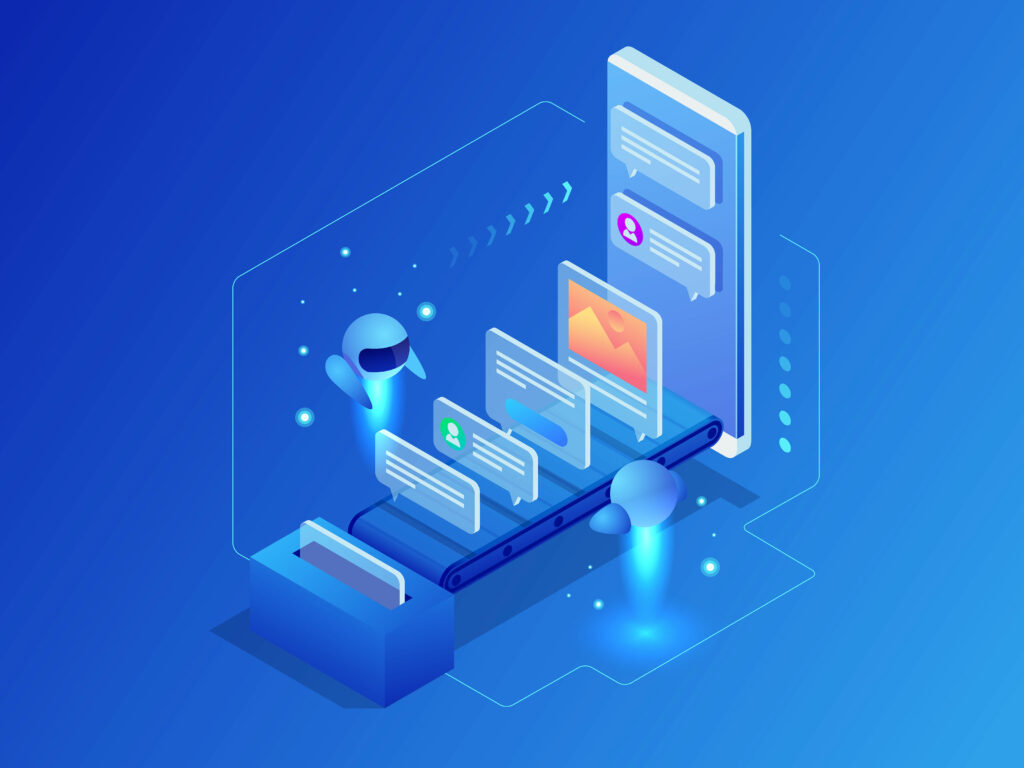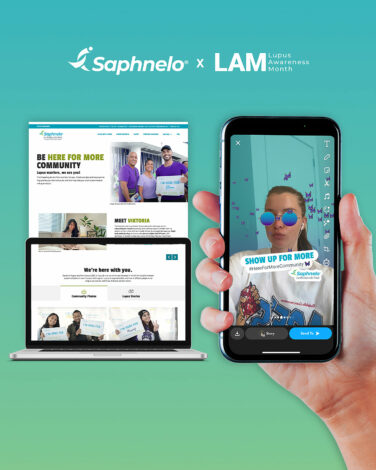As brand managers face demands to launch and manage more products, faster AI/ML are transforming key functions in the pharma marketing workflow—with the promise of even more.
As the healthcare industry considers how to integrate artificial intelligence (AI) and machine learning (ML) technologies into the patient care continuum, healthcare marketers are already embracing AI and ML in their workflows. This is particularly true in the life science market research industry, a $2+ billion sector where primary market insights sourced from prescribers and other healthcare professional (HCP) stakeholders help company decision-making across the product life cycle.
AI can significantly optimize primary market insights-gathering and subsequently improve the commercial rollout of new therapies. The insights business has become more tech-enabled in recent years, automating formerly time-intensive and hassle-bound activities while adhering to the sector’s legal and regulatory requirements. AI takes that tech-enabled journey and puts it on steroids – enabling a sea change in agility and turnaround time. Already, AI is:
1. Eliminating previous practices of lengthy fielding, analysis, and reporting that add up to several months, with a more agile series of pulses where insights are gained in 24-28 hours
2. Streamlining mundane steps in the workflow such as panel sampling algorithms
3. Eliminating traditional tradeoffs between scale and reach, and in-depth expertise
4. Enabling the insights process to move as fast as the marketplace.
5. Adding advanced AI powered predictive analytics, sentiment analysis, and natural language summarization/coding/translation. In many instances, AI and ML technologies are already advancing market research tools and techniques, expediting the search for answers, and speeding up the ability to share findings. They are helping to deepen HCP engagement, a key element in prescribing uplift.
AI vs. Generative AI in Market Research AI has been a part of the research toolkit for some time now, but Generative AI (GenAI) using large language models (LLMs) is where most of the excitement lies in AI technology today. In contrast to traditional analytical AI, LLMs trained on vast quantities of data can perform near human-level language tasks at scale, and power new GenAI tools like chatbots and interactive survey experiences.
 Adding LLMs to chatbots on a website can allow a bot dialogue to be more genuine, while providing vital information for marketers about the path to prescription.
Adding LLMs to chatbots on a website can allow a bot dialogue to be more genuine, while providing vital information for marketers about the path to prescription.
LLMs are trained with historical data, which can include biased or harmful content from the web, with the potential to underrepresent clinically relevant communities or data. Hence “guardrails” are being erected by US authorities, for example, the National Institute of Standards and Technology (NIST) AI Risk Management Framework. The best practice is to provide human oversight along with generative AI’s power to churn through masses of data, output predictions, or recommendations.
Intelligent Chatbots
Adding LLMs to chatbots on a web site can allow a bot dialogue to be more genuine, while providing vital information for marketers about the path to prescription.
For example, brand managers often want to know the information that is critical to an HCP’s treatment decisions or whether they already have decided a course prior to meeting the patient. Traditional market research projects fail at elucidating decision pathways, since they typically begin by telling the HCP all the information they need to know about a drug and asking their thoughts versus listening to their evaluation considerations.
In Adelphi Research’s implementation, an AI-powered bot incorporates an LLM which helps define the information that is offered to the HCP in various scenarios. Adelphi provides analysis on data generated by bot conversations, including review data on the type of questions asked, the decision pathways, and the language/terminology used in conversations with patients. This analysis can allow pharma marketers a better understanding of the factors that the HCPs prioritize in their decision-making process and whether the decision is simple or more difficult.
Research Participant Selection
Brand managers source primary market insights by establishing highly specific criteria about HCP credentials, caseloads, and patient indications. ML algorithms can match the best-fit respondents to a research project and invite the appropriate number of them based on a predicted response rate. The algorithm expedites participant selection, enabling both an improved experience for panel members and a higher-quality result for brand managers.
The more a panel firm knows about its panelists, the more it is able to expedite respondent selection, dynamic profiling, and validation. Traditional market research techniques like panelist profiling can now be complemented with AI/ML to use real-world data (RWD) and social/consumer data to create enriched HCP profiles, improving sampling techniques and enabling more enriched analytics. ML technology can also improve panel sampling systems, offering other surveys to a given respondent based on his or her qualifications and strong interests.
By knowing more about respondents to identify and target them for research, Apollo Intelligence improved speed-to-insights by 25% faster than prior to implementing this capability.
Response Predictors
Since time is money, AI can help to contact HCPs on only the most relevant surveys to their expertise and backgrounds. ML “trains” an application on which members of a survey panel would be the most likely to qualify for a given survey. Such automation can decrease survey duration, improve the likelihood that a respondent qualifies, and decrease the number of invites. It can also better assure that an HCP is not over-contacted and has a better user experience.
In one instance a response predictor helped a vendor send 40% fewer survey invites while decreasing median survey fielding duration by 20%.
Honoraria Optimization
HCP respondents to market research surveys are compensated for their participation based on the firm’s assessment of competitive honoraria offerings and what is required by profession, clinical specialty, and length of interview to secure participation. Data has shown that properly-calibrated compensation leads to decreased fielding time—meaning both faster delivery of data and results, and higher quality responses from HCP panelists.
ML-enabled honorarium optimization algorithms exist that help ensure the offers made to panelists are calibrated to duly compensate respondents, leading to greater engagement and survey participation.
Adverse Event Detection
Since pharma companies are FDA mandated to report potential adverse events in response to drugs in development or drugs sold commercially, one interesting AI use case is applying LLMs to the task of adverse event (AE) identification. Verbatim comment analysis in surveys can be a laborious process, and industry practice is to have human reviewers comb through responses to code them and identify potential remarks of concern. One application uses an LLM to do a first pass analysis of open text, verbatim survey answers that appear to indicate a possible patient adverse event. Identified responses are then reviewed by a human analyst and determined to be potential AE candidates or not.
Applying AI at scale has the potential to catch unaddressed survey responses with many fewer hours of human intervention and help assure capture of every bit of data that can contribute to an understanding of therapeutic issues.
Focus Group Optimizations
The success of focus groups often depends on a highly knowledgeable moderator, one who can pivot as needed to embrace discussion topics in the moment. Insights providers spend not-insignificant time selecting and training moderators, but even highly skilled individuals can benefit from prompts that potentially elucidate discussion points they may not have considered. LLMs can provide real time interpretation of a live discussion and recommend questions that the moderator may pursue.
LLMs also can assist in translating moderator background documents or live conversations into different languages when focus groups span multiple geographies to expedite and maximize the value of the research.
Real World Data (RWD) Integration Healthcare marketing organizations traditionally maintained separate budgets for market insights and data projects. The rise of real-world evidence (RWE) and real-world data (RWD) have created treasure troves of information ripe for analysis—data that can potentially point the way toward new options and innovations. Marketers are beginning to explore the integration of RWD and market research insights—a move that eliminates internal silos around data and information, making data actionable, connected, and timely.
AI/ML applications can address a business decision by:
- combining HCP or patient insights sourced from primary market research with de-identified RWD data from databases, web logs, or other sources;
- Expediting enlarged data sets from which pharmas can create a hyperspecialized persona of target prescribers to better know and engage the community;
- Merging behavioral and insights data to better target a first-in-class treatment.
The Road Forward
Time-to-insight matters as life science teams work to innovate around much needed therapies, while quickly detecting and responding to market changes. AI is a great enabler that can speed up time-consuming market research initiatives and help improve research speed and quality.
As technology raises the bar of what is possible, AI and ML applications in market research are an important milestone that pharma marketing teams can—and must—embrace.











